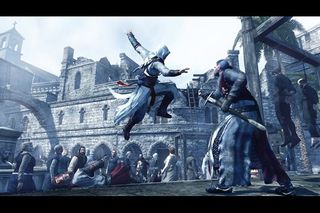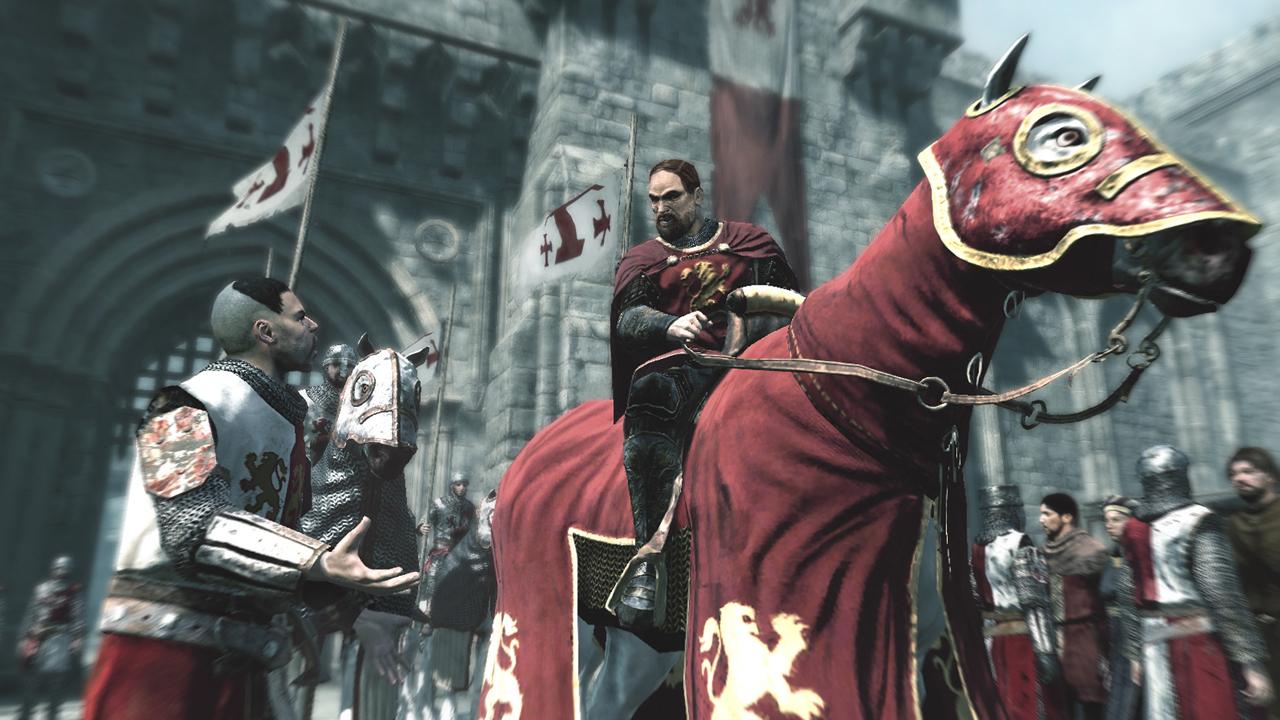Why you can trust GamesRadar+
When the guards catch wise to you - and they will - you'll have two options: run and find a hiding place until the alert phase is over, or stand and fight until nobody wants to mess with you anymore. If you pick the latter, expect to be surrounded by a group of guards that attack one at a time, like bad guys in a kung fu movie. This is stupid, yes, but it works in the context of the game's unique combat system.
Survival here isn't a matter of just wildly hacking at your enemies, but of careful timing; your enemies are extremely good at blocking your strikes, so it's often best to simply hang back in a defensive stance (which will deflect most attacks) and rely on precisely timed counterattacks, which usually kill instantly. Later on, you'll learn a lot of moves that will give you an edge in a fight (as well as some instant-kill throwing knives that will let you avoid most of them), but they're never really necessary for survival.

What makes the fights interesting is that the guards don't act like robots - they'll sometimes drop their guard to taunt you or scratch an itch, leaving them open to a strike (note: taking advantage of this will prompt other guards to immediately attack you from behind). They'll also react with horror when you messily kill their friends, and will sometimes even give up and run away screaming if things aren't going their way. The crowds around you will react in much the same way, gathering around to watch at first, and then scattering in terror at the first sign of blood.
But guards aren't who you're there to kill. The actual assassinations that cap each mission vary wildly, beginning with a simple, quiet stabbing in the middle of a crowd and working up to increasingly elaborate set-pieces in which you'll have to stab a magistrate at a public execution (in front of a huge crowd of onlookers and guards, no less), or chase a slaver through crowded streets. And when you finally deliver the killing blow, you'll have a weird, heart-to-heart conversation with them in which they (usually) defend their seemingly despicable work as good and just, leaving you to wonder just what the hell is going on.
What makes the fights interesting is that the guards don't act like robots - they'll sometimes drop their guard to taunt you or scratch an itch, leaving them open to a strike (note: taking advantage of this will prompt other guards to immediately attack you from behind). They'll also react with horror when you messily kill their friends, and will sometimes even give up and run away screaming if things aren't going their way. The crowds around you will react in much the same way, gathering around to watch at first, and then scattering in terror at the first sign of blood.
But guards aren't who you're there to kill. The actual assassinations that cap each mission vary wildly, beginning with a simple, quiet stabbing in the middle of a crowd and working up to increasingly elaborate set-pieces in which you'll have to stab a magistrate at a public execution (in front of a huge crowd of onlookers and guards, no less), or chase a slaver through crowded streets. And when you finally deliver the killing blow, you'll have a weird, heart-to-heart conversation with them in which they (usually) defend their seemingly despicable work as good and just, leaving you to wonder just what the hell is going on.
More info
| Genre | Action |
| Description | Ubisoft Montreal's formerly secret project seems to mix elements of Splinter Cell and Prince of Persia. |
| Franchise name | Assassin's Creed |
| Platform | "PC","PS3","Xbox 360" |
| US censor rating | "Mature","Mature","Mature" |
| UK censor rating | "","","" |
| Release date | 1 January 1970 (US), 1 January 1970 (UK) |


